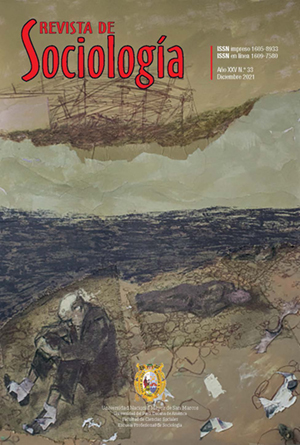Planning of urban space: tourism, culture and gastronomy. Lights and shadows 100 years from the Güemes neighborhood
DOI:
https://doi.org/10.15381/rsoc.n33.21534Keywords:
Urban planning, tourism, commercial pole, state and private strategyAbstract
In the last twenty years, certain sectors of the cities have witnessed a reconfiguration that reproduces the current capitalist mode of production. In this framework, the state agenda proposes a series of spectacular celebrations and commemorations that operate as logics of ideological suturing in socio-segregated contexts. The city of Córdoba is not the exception to these processes and also a set of articulations of subjects and practices intervene in transformations that generate new ways of experimenting and producing in areas based on different logics. This work presents from a qualitative perspective, at first, a journey through historical turning points and urban politics that update memory, block urban spaces and continue with forms of domination in the neighborhood scene. It is postulated that the commercial pole is part of the state and private strategy to characterize the celebration of the centenary of the neighborhood. Then, the program "Güemes Centenario: 100 Bares en Ocho Manzanas" is described as a reconstruction of the social experience that blends the tourism, the culture and the gastronomy. Finally, it reflects on how the social discourse is built around the celebrations of the 100 years of the Güemes neighborhood.
Downloads
Published
Issue
Section
License
Copyright (c) 2021 Ailen Suyai Pereyra

This work is licensed under a Creative Commons Attribution 4.0 International License.
AUTHORS RETAIN THEIR RIGHTS:
a. Authors retain their trade mark rights and patent, and also on any process or procedure described in the article.
b. Authors retain their right to share, copy, distribute, perform and publicly communicate their article (eg, to place their article in an institutional repository or publish it in a book), with an acknowledgment of its initial publication in the Revista Sociología.
c. Authors retain theirs right to make a subsequent publication of their work, to use the article or any part thereof (eg a compilation of his papers, lecture notes, thesis, or a book), always indicating its initial publication in the Revista Sociología (the originator of the work, journal, volume, number and date).
























